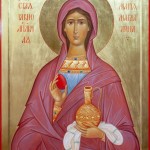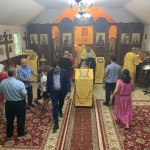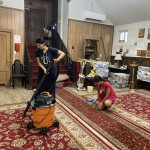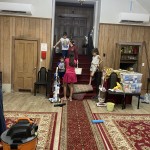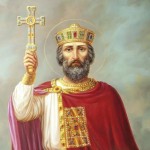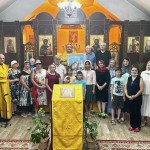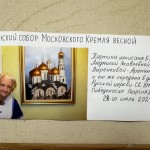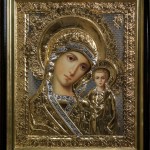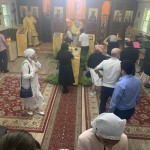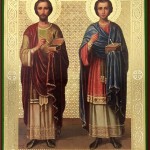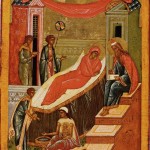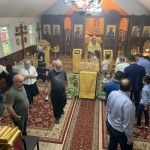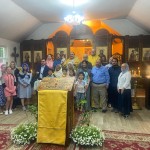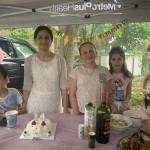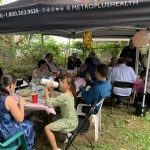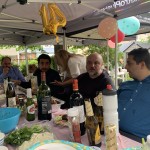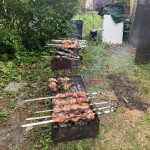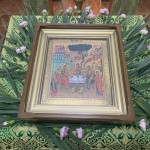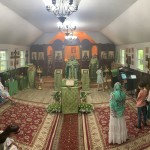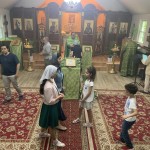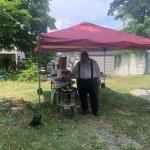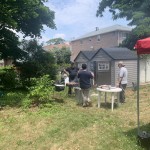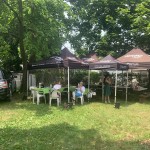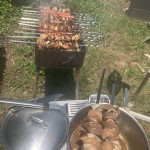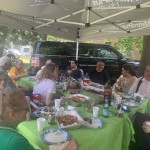Saint Mary came from the Palestinian city of Magdala. She was seriously ill and no one could cure her, since she was DEMANDED, i.e. possessed by demons.
Hearing about the miracles performed by Jesus Christ, she came to Him with a prayer for recovery and received healing. Not only the miracle of healing, but also the miracle of this meeting itself made Magdalene believe in Jesus Christ the Savior and become His faithful disciple. St. Mary did not renounce Him even during the terrible trials, arrest and trial of the Teacher. Even when the apostles were afraid and left Him. She witnessed the Crucifixion, death and burial of Christ. And she became an eyewitness to an amazing miracle – the Resurrection of the Savior from the dead.
St. Mary is called EQUAL OF THE Apostles – precisely because she, along with the apostles, had to establish the Christian faith among people.
It is known that she preached the Gospel (which means “good news” in Greek) in Judea, then in Italy, in Rome.
There is a legend, recorded in life, about a visit to St. Maria of the Roman Emperor Tiberius. According to legend, Mary Magdalene managed to present her gift – a red egg – to the Roman Emperor Tiberius himself. She handed him her gift with the words: “Christ is Risen!” (There is a version that the emperor did not believe in the Resurrection of Christ and then the egg itself turned red right before the eyes of the ruler of Rome). This legend is associated with the Easter custom of giving each other red eggs (an egg, a symbol of mysterious life, expresses faith in the coming general Resurrection).
Святая Мария происходила из палестинского города Магдалы. Она тяжко болела и никто не мог ее вылечить, так как она была БЕСНОВАТАЯ, т.е. одержимая бесами.
Услышав о чудесах, творимых Иисусом Христом, она пришла к Нему с мольбой о выздоровлении и получила исцеление. Не только чудо исцеления, но и чудо самой этой встречи заставило Магдалину уверовать в Иисуса Христа Спасителя и стать верной Его ученицей. Св.Мария не отреклась от Него даже во время страшных испытаний, ареста и суда над Учителем. Даже когда апостолы испугались и покинули Его. Она была свидетельницей Распятия, смерти и погребения Христа. И она же стала очевидицей потрясающего чуда – Воскресения Спасителя из мертвых.
Св. Марию называют РАВНОАПОСТОЛЬНОЙ – именно потому, что ей пришлось наравне с апостолами утверждать среди людей христианскую веру.
Известно, что она проповедовала Евангелие (что в переводе с греческого означает “благая весть”) в Иудее, потом в Италии, в Риме.
Есть легенда, записанная в житии, о посещении св. Марией римского императора Тиберия. Согласно легенде, Мария Магдалина сумела вручить свой подарок – яйцо красного цвета – самому римскому императору Тиберию. Она протянула ему свой дар со словами: “Христос Воскресе!”(Есть версия, что император не поверил в Воскресение Христа и тогда яйцо само окрасилось в красный цвет прямо на глазах властителя Рима). С этим преданием связывают пасхальный обычай дарить друг другу красные яйца (яйцо, символ таинственной жизни, выражает веру в грядущее общее Воскресение).

